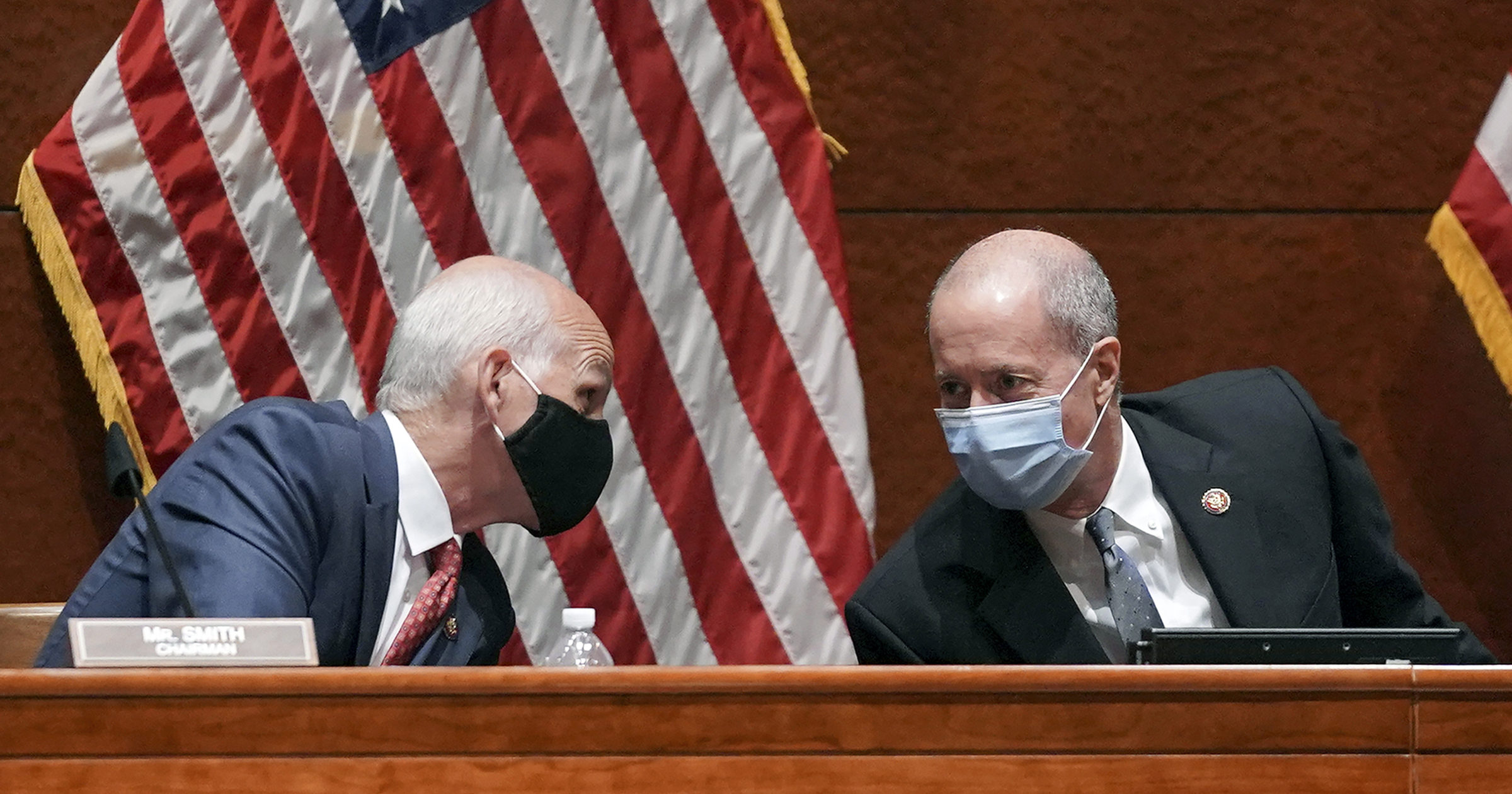
House Passes Defense Bill Leaving Big Tech Protections Intact as Trump Renews Vow To Veto
The House on Tuesday easily approved a wide-ranging defense policy bill, defying a veto threat from President Donald Trump and setting up a possible showdown with the president.
The 335-78 vote in favor of the $731 billion defense measure came hours after Trump renewed his threat to veto the bill unless lawmakers clamp down on social media companies.
Trump tweeted Tuesday that he will veto “the very weak National Defense Authorization Act,” or NDAA, unless it repeals so-called Section 230, a part of the communications code that shields Twitter, Facebook and other tech giants from content liability.
I hope House Republicans will vote against the very weak National Defense Authorization Act (NDAA), which I will VETO. Must include a termination of Section 230 (for National Security purposes), preserve our National Monuments, & allow for 5G & troop reductions in foreign lands!
— Donald J. Trump (@realDonaldTrump) December 8, 2020
Trump also wants Congress to remove a provision of the bill that allows for the renaming of military bases that honor Confederate leaders.
Congressional leaders moved ahead with the bill — which affirms automatic 3 percent pay raises for U.S. troops and authorizes other military programs — despite the veto threat.
The final vote represented approval from more than 80 percent of the House — well above the two-thirds support required to override a potential veto.
A total of 140 Republicans joined 195 Democrats to back the bill, which now goes to the Senate.
Wyoming Rep. Liz Cheney, a member of the House Republican leadership, urged Trump not to follow through on his veto threat, but added that if he does veto it, “We should override.”
If Trump vetoes the bill, “we will come back to vote to override,” Democratic Rep. Adam Smith of Washington, the chairman of the House Armed Services Committee, said.
The House Freedom Caucus, a bloc of roughly three-dozen conservatives, backed Trump’s position on Tuesday and opposed the bill.
“We stand with the president,” Rep. Andy Biggs of Arizona, the group’s chairman, said.
“This particular NDAA bill is filled with flaws and problems,” including limitations on troop withdrawals ordered by Trump in Afghanistan and Germany, Biggs said.
Smith and other lawmakers noted that many defense programs can only go into effect if the bill is approved, including military construction. The measure guides Pentagon policy and cements decisions about troop levels, new weapons systems, and military readiness and personnel.
Troops should not be “punished” because politicians failed to enact legislation to ensure their pay, Rep. Mac Thornberry of Texas, the top Republican on the Armed Services panel, said.
The $731 billion measure increases hazardous duty pay for overseas deployments and other dangerous job assignments, hikes recruiting and retention bonuses and adjusts housing allowances.
Measures approved by the House and Senate would require the Pentagon to rename bases such as Fort Benning and Fort Hood named for Confederate generals, but Trump opposes the idea.
Smith and Thornberry said in a joint statement last week that lawmakers had “toiled through almost 2,200 provisions to reach compromise on important issues affecting our national security and our military.”
For 59 straight years, they added, the NDAA has passed because lawmakers and presidents “put the needs of our military personnel and America’s security first. The time has come to do that again.”
The powerful Republican chairman of the Senate Armed Services Committee, Sen. James Inhofe of Oklahoma, said he had spoken to Trump and argued that the defense bill is not the place for the Big Tech fight.
“I agree with his sentiments — we ought to do away with 230,” Inhofe told reporters. “But you can’t do it in this bill.”
If he does veto the defense bill, Congress could cut short its Christmas recess to hold override votes, senior House members said.
White House press secretary Kayleigh McEnany defended Trump’s attempt to pressure Congress on Section 230.
“Twitter has become a publisher, choosing to fact-check content,” she said. “And when you’re a publisher, there are certain responsibilities with that and you should not be immune from liability.”
Past presidents have certainly threatened to veto defense bills, which are typically widely bipartisan measures.
Over the summer, the Senate approved its version 86-14, while the House similarly passed its effort, with opposition coming mostly from the liberal and conservative flanks.
Trump’s allies on Capitol Hill, including House Minority Leader Kevin McCarthy, have railed against social media companies for seemingly stifling conservative viewpoints and censoring the president.
McCarthy voted for the bill on Tuesday but said he would not support overriding the veto.
Some Democrats, including Senate Democratic Leader Chuck Schumer, agree the Section 230 provision could be revisited.
The Western Journal has reviewed this Associated Press story and may have altered it prior to publication to ensure that it meets our editorial standards.
Truth and Accuracy
We are committed to truth and accuracy in all of our journalism. Read our editorial standards.
Advertise with The Western Journal and reach millions of highly engaged readers, while supporting our work. Advertise Today.












